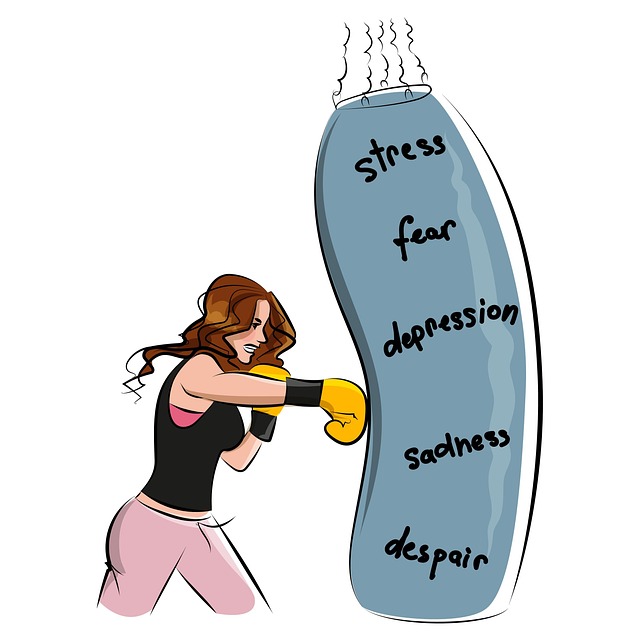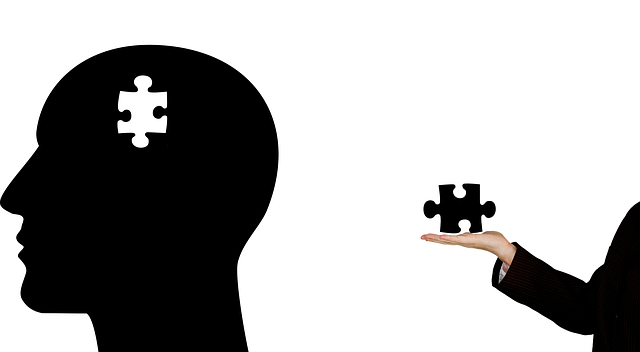Golden Codependency Therapy (GCT) is an effective approach for mental wellness groups, addressing codependent behaviors prevalent in such settings. By recognizing and understanding these patterns, facilitators can provide tailored crisis interventions. GCT focuses on self-awareness, emotional regulation, and healthy boundaries to transform early life experiences into positive thinking. Through group discussions and activities, participants learn assertive communication, conflict resolution, and self-care routines, reducing stress and enhancing mental health. Creating a safe space with established groundrules, inspired by GCT, fosters open dialogue, respect, and non-violent communication, ensuring a productive and supportive group environment.
Mental wellness group facilitation is an effective approach to fostering healing and growth among individuals navigating codependency issues. This article explores powerful techniques, with a particular focus on Golden Codependency Therapy, designed to unravel the complexities of codependent relationships. We delve into proven group facilitation strategies, highlighting the significance of creating safe spaces for participants to heal. By understanding codependency’s impact and implementing these facilitative methods, therapists can empower individuals to break free from unhealthy patterns and embrace a journey of mental wellness.
- Understanding Codependency and Its Impact on Mental Wellness
- Golden Codependency Therapy: Principles and Techniques
- Group Facilitation Strategies for Promoting Healing and Growth
- Creating a Safe Space: Essential Groundrules for Effective Groups
Understanding Codependency and Its Impact on Mental Wellness

Codependency is a complex dynamic where an individual’s well-being becomes intertwined with that of another person, often leading to unhealthy relationships and impeding mental wellness. This concept has gained significant attention in therapeutic circles, particularly through the lens of Golden Codependency Therapy. Such therapy aims to help individuals recognize and break free from codependent patterns, fostering healthier interactions and boosting confidence.
Understanding codependency is crucial for mental wellness facilitators as it often underlies many issues brought into group settings. By recognizing codependent behaviors—such as overgiving or people-pleasing—facilitators can provide valuable insights and stress reduction methods to help participants navigate their relationships more effectively. Moreover, crisis intervention guidance tailored to codependency can offer immediate relief during intense emotional moments, enabling individuals to develop coping strategies for long-term mental wellness.
Golden Codependency Therapy: Principles and Techniques

Golden Codependency Therapy (GCT) is a transformative approach that empowers individuals to heal deep-rooted emotional patterns and foster healthy relationships. This therapy focuses on identifying and challenging codependent behaviors, which often stem from early life experiences and can manifest in various aspects of an individual’s life. By understanding the underlying principles of codependency, facilitators can guide participants through a journey of self-discovery and personal growth.
The core principles of GCT emphasize self-awareness and emotional regulation. Techniques include teaching individuals to recognize and set healthy boundaries, encourage self-care practices, and promote assertive communication. Through group discussions and interactive activities, members learn to navigate interpersonal dynamics, improve conflict resolution skills, and develop a stronger sense of self. This therapeutic process aims to reduce stress and enhance overall mental health, as individuals gain the tools to build fulfilling relationships based on mutual respect and independence.
Group Facilitation Strategies for Promoting Healing and Growth

Group facilitation plays a pivotal role in fostering healing and personal growth within mental wellness settings. One effective strategy is incorporating Golden Codependency Therapy, which encourages individuals to explore their interdependent relationships and break free from unhealthy patterns. Through structured group sessions, facilitators guide participants in understanding codependent behaviors and replacing them with healthier alternatives. This therapeutic approach promotes self-awareness, enhances communication skills, and cultivates supportive connections among group members.
Additionally, fostering a positive thinking environment is essential for mental wellness groups. Facilitators can employ techniques like reframing negative thoughts, teaching mindfulness practices, and encouraging open dialogue to challenge unhelpful beliefs. Integrating these strategies into group discussions supports individuals in developing self-care routines that cater to their unique needs, ultimately contributing to better mental health outcomes as per the Mental Health Policy Analysis and Advocacy.
Creating a Safe Space: Essential Groundrules for Effective Groups

Creating a safe space is paramount when facilitating mental wellness groups, serving as the foundation for open dialogue and profound healing. Groundrules, often referred to as ‘the contract’ of the group, are essential tools in this process. They establish boundaries that encourage respect, confidentiality, active listening, and empathy among participants. By fostering an environment free from judgment and promoting non-violent communication, facilitators can help members explore sensitive topics without fear of repercussions, akin to the principles espoused in Golden Codependency Therapy.
These groundrules also facilitate effective conflict resolution techniques, empowering group members to navigate disagreements constructively. Mind Over Matter principles are invoked when participants are encouraged to manage their thoughts and emotions, recognizing that their mindset significantly impacts overall mental wellness. Much like Risk Management Planning for Mental Health Professionals prepare practitioners for potential challenges, these groundrules equip facilitators and participants with strategies to handle emotional intensities, ensuring a safe, supportive, and productive group dynamic.
Mental wellness group facilitation plays a pivotal role in healing and growth, especially through techniques like Golden Codependency Therapy. By fostering a safe space and implementing effective strategies, facilitators can help individuals navigate codependency issues and significantly improve their mental wellness. Understanding the principles of this therapy and creating supportive group dynamics are key to reaping these benefits.














